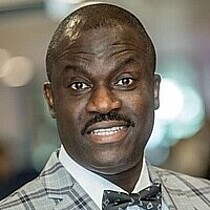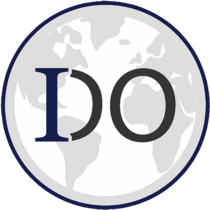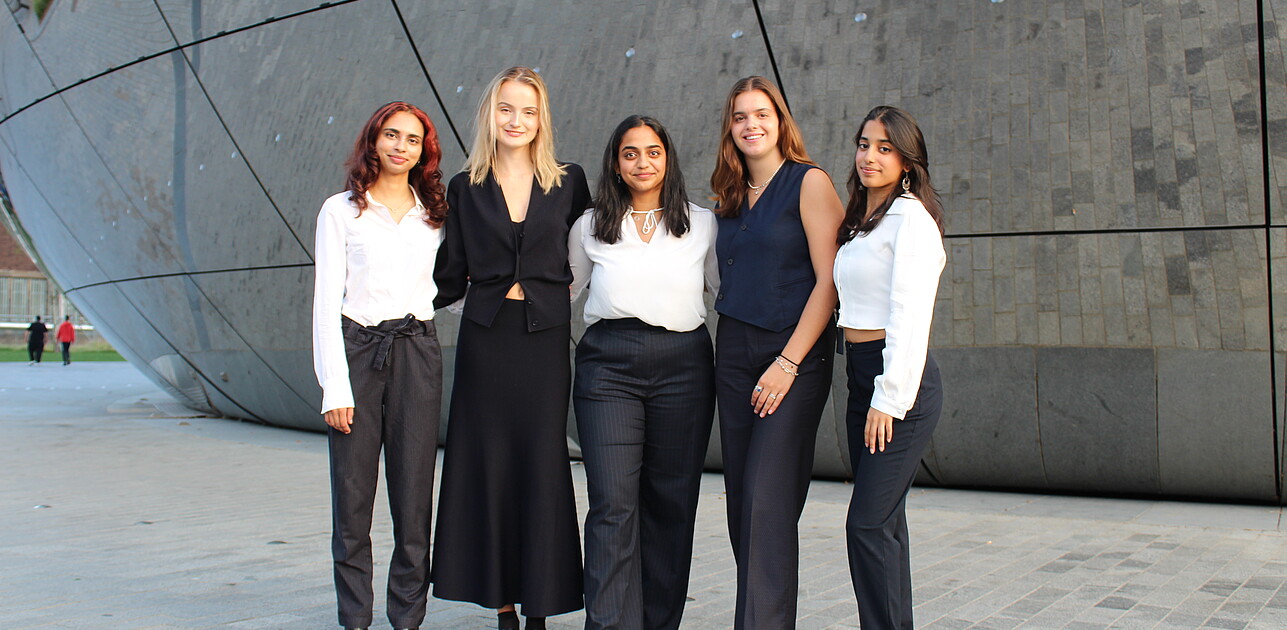


I DO Project is run as a collaboration between RSM and the I DO Student Board and Committees, which allows us to manage the complexity of the NGO challenges as well as integrate student feedback. This arrangement therefore brings us closer to the RSM mission to be a force for positive change in the world.
Applications for student board or committee positions are open exclusively to Master students, Pre-Master students, and incoming 3rd year Bachelor students enrolled at Erasmus University Rotterdam for the academic year 2024/25. The application period will begin in the week of March 18th 2024, and end on April 8th 2024.
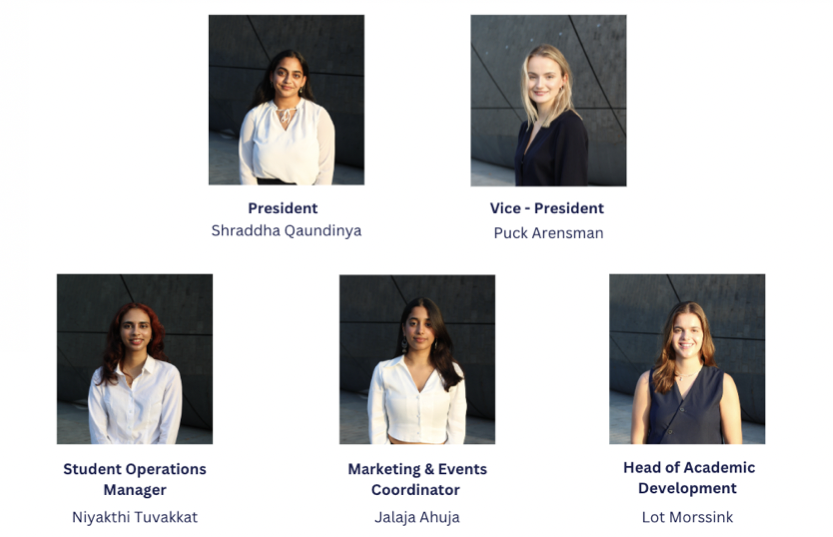
The Student Board is responsible for connecting students and NGOs within the I DO course and supporting them to create positive impact as they take part. The Board is a unique group of motivated third-year BA and IBA students and master students who all have a passion for social impact. They demonstrate the spirit of I DO – as a course for students run by students.
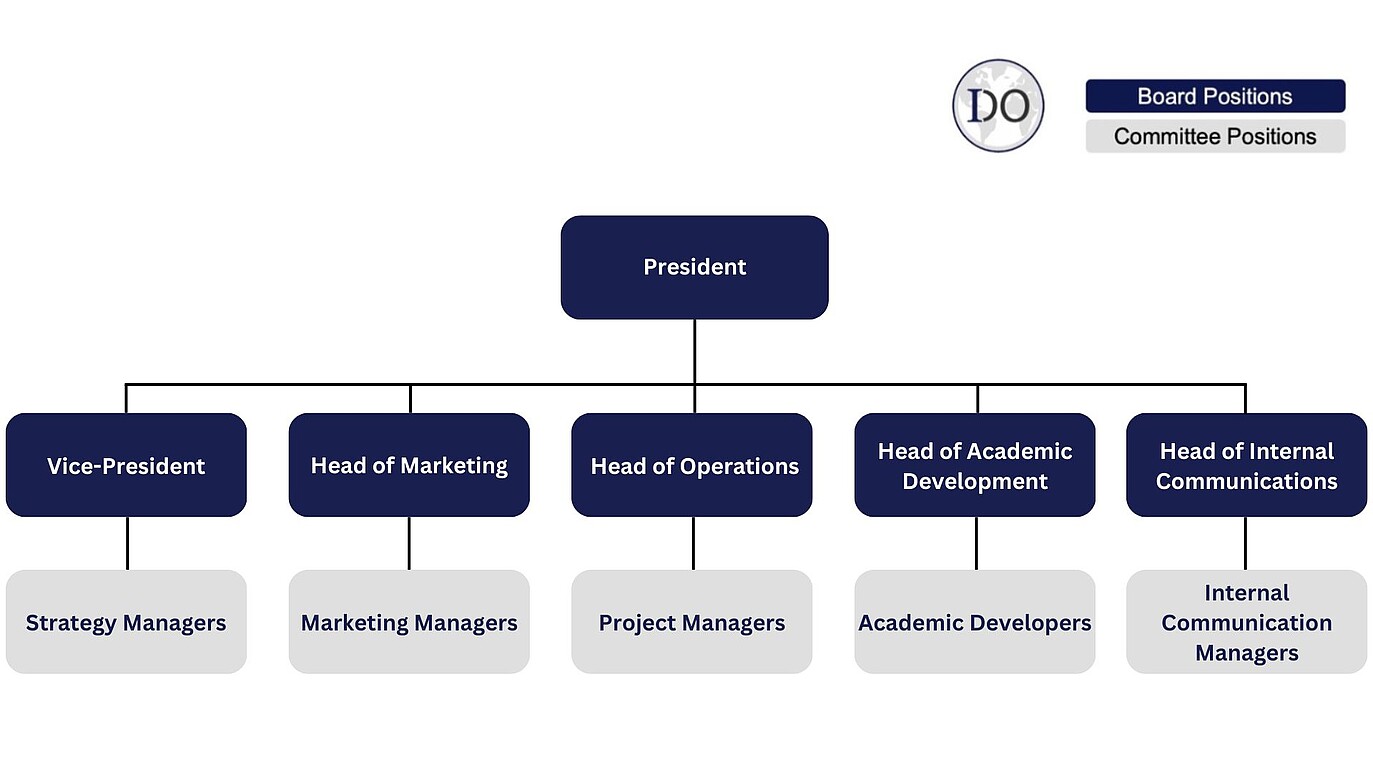
Find below descriptions of the different board positions you can apply for
At the beginning of your Student Board year, you will craft a comprehensive overview of the project’s phases with the other board members to align on the overall direction and needs of the board in the coming year. This will help you establish deadlines and identify key targets.
After this, a typical week will involve hosting a weekly board meeting with the other board members to discuss weekly updates from their committees, align on the needs from internal and external stakeholders and give your insights and recommendations to the various needs at hand. You will discuss and plan the organisation’s tasks for the week. You will note any needs from the other board members that need to be forwarded to external stakeholders.
You will be in frequent contact with all other board members in order to respond to ad hoc questions from their responsible committees. There may be ad hoc sessions or meetings about various topics – ranging from preparatory work to recruitment.
Additionally, you will work closely with the Vice President in hosting a weekly meeting with the I DO Advisory Board to talk about the I DO project's future, to propose any necessary changes, and to reflect on progress.
You will end your week by having a weekly wrap-up meeting with the Vice President to share general organisational and stakeholder updates, department weekly progress reports, issues arising from them, and feedback and discuss any sharing of responsibilities if necessary.
Stakeholder communication will be paramount. You will generate updates regarding the progress and performance of the course with the Academic Development and Operations teams by hosting weekly update meetings with our RSM Assistant Professor Taslim Alade, which will also act as a platform of support for university technicalities and information.
At the beginning of your Student Board year, you and the strategy committee will work with the President and other board members to align on the projects that fulfil the needs of the I DO course and organisation in alignment with internal and external stakeholders, generating clear project timelines and key targets.
A typical week starts with a meeting that you will host with your strategy committee where you will discuss progress, deliverables and identify questions and stakeholders that need to be contacted. You will also update your committee on the outcomes of last week’s board meeting as well as the advisory board meeting.
During the week, you will attend the weekly board meeting where you will update the other board members and president on the performance of the strategy committee and address any questions or concerns.
Every week, you also have a meeting with the I DO Advisory Board to talk about the progress of the I DO project, propose changes, or discuss the future of the project beyond the course at RSM.
There are always last minute calls or meetings to attend with external stakeholders, other board members or committees to discuss points going on during that week.”
No two weeks are the same for the Head of Academic Development. During teaching periods, you will be scheduling and participating in meetings with external speakers who will be instructing students on marketing, fundraising, NGO analysis, and consulting, for example. You might have to prepare for these meetings – as well as researching potential external speakers. Not all teaching is done by external speakers. You will teach some of it and prepare workshops for students. Workshops will be in-person. To ensure that the whole Academic Team is moving in the same direction, most weeks you and your team will meet to establish the content of forthcoming lectures and prepare any necessary support such as designing presentation slides or researching and uploading reading materials. This can take between an hour or five hours per week, depending on the complexity of the sessions.
There will be a weekly hour-long meeting with the Student Board to review the academic department's progress.
Your responsibilities include managing the I DO Course on the Canvas platform; issuing weekly announcements, answering questions in the discussion section on Canvas, and keeping the modules updated. You will need to ensure students are kept informed of the course’s progress and updates.
Your week includes working with I DO stakeholders for scheduling, planning, and grading assignments.
Prior to the beginning of the academic year, you are responsible for managing the recruitment of NGOs with your operations and project management team. Amidst this, you will review successful student applicants and divide them into teams, each consisting of five members.
After the beginning of the course, your week may vary according to the progress of the projects. Hence, prioritisation and organisation skills are necessary to ensure effective task management.
A regular week may encompass checking in with your team—delegating tasks and gathering relevant information from them. You may schedule NGO and student check-in sessions across the weeks to gather feedback and find areas of improvement. Both stakeholder insights should be communicated to the board and relevant members to ensure continuous improvement.
You are expected to attend most of the academic workshops to follow the student's progress and stay up-to-date with the course. You will also review any issues raised with individual students or teams and NGOs.
During the recruitment period, you are expected to coordinate with the board to redefine board/committee roles, plan interviews, and execute it smoothly. You are also expected to execute student consultant recruitment for the upcoming year by coordinating with the board, standardising a selection rubric, reviewing applications, and creating the final list of students.
You may end the week with a general board meeting to discuss progress, queries/concerns and feedback to be implemented.
In a typical week, the Head of Marketing would oversee various tasks aimed at enhancing brand awareness and promoting the project's initiatives. This would involve coordinating marketing efforts such as content creation and social media management on platforms like Instagram and LinkedIn, organising on-campus activities for branding purposes, and monitoring the social media activities of partner organisations. Additionally, the board member would work closely with the marketing committee to ensure tasks are properly distributed and completed. Other smaller brainstorm sessions can be set up with the student operations, and academic teams to brainstorm on how to promote the I DO Project and showcase the progress made by students over the year. The Head of Marketing would utilise their creativity and innovative ideas to drive engagement and connections with the NGOs. They should ensure the representation and promotion of perspectives from students, board members, committees, and NGOs.
The Head of Internal Communications is responsible for managing and enhancing internal communication strategies for all stakeholders within the organisation. This role encompasses overseeing the internal newsletter, organising events, establishing communication systems for the board, and collaborating with various departments and stakeholders to ensure effective communication practices.
The year begins for the Head of Internal Communications with the crucial task of establishing clear communication strategies aligned with the organisation's objectives and implementing them swiftly. After the initial strategy phase, the focus shifts towards document management, ensuring seamless organisation and accessibility of important internal documents. Regular internal events are organised to foster team unity and boost morale, with the Head overseeing logistics and coordination. Additionally, they play a pivotal role in organising board meetings, ensuring the availability of resources and participants, and facilitating effective communication within the board. Throughout the year, the Head of Internal Communications remains dedicated to ensuring strong communication practices across various committees, collaborating closely to maintain consistency and clarity in messaging.
Find below descriptions of the different committee positions you can apply for.
No two weeks are the same for an Academic Developer. During teaching periods, you will schedule and participate in meetings with external speakers who will be giving instruction to students about marketing, fundraising, NGO analysis, and consultants, for example. You may have to prepare before these meetings as well as researching potential external speakers.
Most weeks, you and your team will meet to ensure the whole Academic Team is moving forward in the same direction, and to establish the content of lectures and prepare any necessary support such as designing slides or researching and uploading reading materials.
Meanwhile, you support the Head of Academic Development in managing the I DO course on the Canvas platform, send out weekly announcements, answer questions in the discussion section, and keep the modules updated. This is to ensure the students are kept updated about the course.
Your week will include working with I DO stakeholders on scheduling, planning, and grading assignments.
The responsibilities of the Operations and Project Management team greatly varies across the duration of the course.
Before the academic year begins you are responsible for the intensive task of recruiting 15 NGOs for the course. This process involves conducting several interviews and curating a final list of NGOs after assessment based upon an established metric within the team. Following this, you will assist the Head of Operations with on-boarding the NGOs into the I DO Project.
You will then be responsible for 4 - 5 student consultant teams—you will oversee the work produced by the teams, closely monitor the relationship between the student teams and their NGOs and assist in any matters of concern or queries. Hence, strong problem-solving skills are necessary to ensure fast and effective responses to any issues that may arise over the academic year.
Furthermore, during the year you may also assist the Head of Operations with student feedback collection and NGO check-in sessions. You will also be responsible for assisting the Academic team in the grading of students’ assignments.
As a member of the strategy committee of I DO, you’ll be responsible for executing the long-term vision and strategic operations of I DO. You can expect to join two meetings per week; one with your committee head, the Vice President, in addition to non-regular meetings with other committees or external stakeholders in regards to the execution of strategic initiatives. You can expect to attend an average of one and a half hours of meetings per week whilst the other time involves executing strategic tasks. Some weeks will be dedicated to projects such as those related to strategic requests by the Vice President. Other weeks will have fewer obligations, in which case you’ll have the opportunity to use your proactiveness to work on your strategic proposals and projects. Being a member of the I DO Strategy Committee will give you freedom to work on projects you believe will strengthen the future of I DO, and having a proactive attitude is therefore important for succeeding in the role of Strategy Manager.
Your week might start by meeting with the Head of Marketing to align on what tasks the team will work on this week. Here you might brainstorm post ideas, how to increase engagement, or upcoming events to bring students together. Similarly, you’ll work to ensure that all of I DO’s social media pages are updated and deliver the correct messaging. Your week might also include brainstorming ideas for potential on-campus marketing ideas to promote upcoming events.
As an integral part of our internal communications team, the Internal Communications Manager will play a key role in enhancing communication strategies within the organisation. Reporting to the Head of Internal Communications, this committee position will support various initiatives aimed at fostering effective communication practices among employees.
As a member of the Internal Communications Committee, the year kicks off with active involvement in establishing clear communication strategies alongside the Head of Internal Communications. Following the strategy implementation phase, the focus shifts towards document management, assisting in organising and maintaining crucial internal documents for easy access. Committee members actively participate in organising regular internal events, contributing ideas, and assisting with logistics to ensure successful execution. They also play a role in coordinating board meetings, ensuring smooth proceedings and effective communication among board members. Throughout the year, Committee members remain committed to fostering strong communication practices across committees, actively collaborating to uphold consistency and clarity in messaging throughout the organisation.
Prof. Lucas Meijs is professor of Strategic Philanthropy and Volunteering at RSM and has advised the Student Board since the beginning of the I DO project. He now supports Taslim Alade in actively running the I DO course in co-creation with the student board.
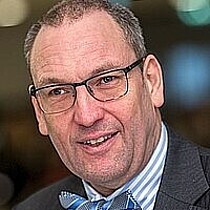
Dr Taslim Alade is a lecturer in the department of Business-Society Management at RSM and the coordinator of the I DO course. He also teaches, coordinates the Professional Development course, and is a thesis coach to RSM master students. Taslim is very passionate about lecturing because it aligns with his personal value of positively impacting society via the students that he teaches and coaches.
